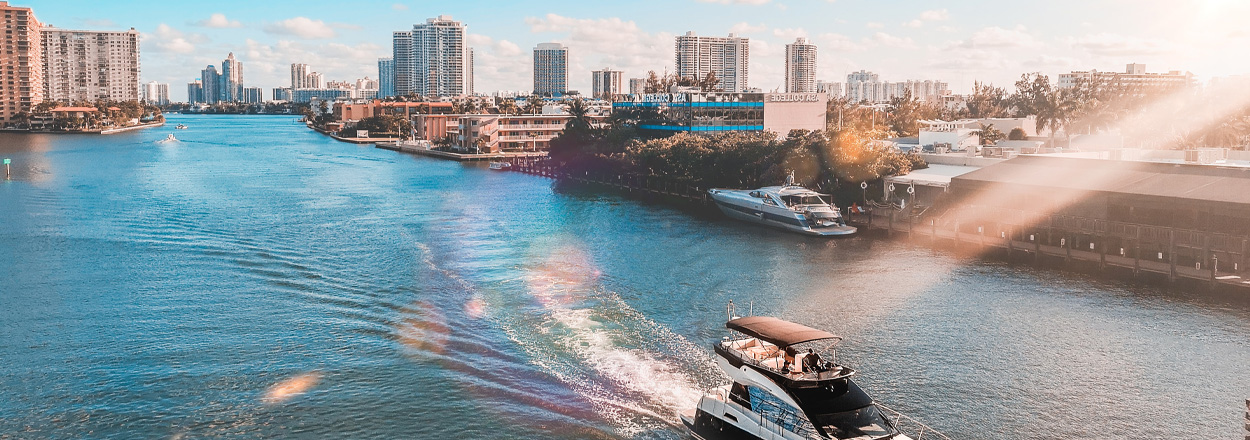
Travel insights from Ruth Terry, contributor to The Compass
The Future of Luxury Travel
It's no secret that the pandemic gutted global travel, even the typically more resilient luxury market. Between 2019 and 2020, global luxury travel revenue plummeted by 54%, according to Statistica. Two years later, the luxury travel market is rebounding through deep-pocket spending on bigger, longer and more personalized trips to the world's more rarefied locales. Estimates vary by source, but a recent analysis by Technavio predicts global travel market growth of $1.23 trillion by 2025.
While many luxury travel providers and advisors are eager for things to return to normal, others are focused entirely on emerging trends. These innovative industry leaders are using this moment to reimagine luxury travel experiences that are technology-driven, ultra-bespoke and out of this world.
These are the top trends future-focused travel advisors need to be aware of to ensure their agencies' longevity and relevance within a rapidly changing luxury travel ecosystem.
Integrated Technology Enables Seamless Service
The global pandemic forced people to rely on technology in more ways than we ever thought possible, from ordering groceries to clocking in at work. And that relatively fast adoption of COVID-necessary technologies also accelerated the use of digital strategies in travel and tourism — advances that travel advisors should take note of.
For example, contactless check-in, mobile room keys and apps like Grace, which allows guests to make service requests directly from their mobile devices, all enhance customers' hotel stays. And select airlines are piloting biometric technology and facial recognition software that allows passengers to board without having to present an ID or boarding pass.
According to a recent survey by global law firm White & Case, people are now more comfortable sharing personal data, such as health information needed for travelers' vaccine passports. More than 40% are also "willing to trade reduced privacy for better services." While this particular survey focused on smart cities, these shifts have profound implications for the future of bespoke travel, especially services provided via digital membership and subscription platforms.
The Rise of Subscription Travel
Though models vary, luxury travel membership and subscription platforms are essentially quite similar to streaming services and fitness apps. Typically, they’re a fee-based digital infrastructure that allows members to access an array of content or services while capturing data about user preferences. For travel advisors, a robust subscription platform could provide better data about larger trends emerging from their client base and more granular details about their individual preferences.
It also lets travel advisors keep track of more clients and offer more options. For example, for a monthly fee of $2,500, members of Inspirato Pass, a luxury subscription service, have access to more than 400 luxury properties and hotels and one million trips.
"We believe subscription travel is going to bring tens of billions of dollars of revenue into the future," because they create a win-win for subscribers and vendors, says Inspirato founder and CEO Brent Handler. "For consumers, subscription products offer a convenient, personalized and often lower-cost way to buy what they want and need. And for accommodation providers, the obvious benefits are predictability and profitability. Subscriptions help solve the challenge of un-booked inventory, producing incremental occupancy and forecastable cash flow, at shoulder times as well as at busier moments on the calendar."
Since launching Inspirato Pass in 2019, Handler says he has seen a surge in similar products, from luxury hotel chains and even Alaska Airlines.
Moving forward, experts predict enhanced data collection will facilitate "automated bespoke," a term used by Publicis Sapient, a content hub and consultancy focused on smart tourism, to describe the seamless integration of artificial intelligence into destinations and customer service. In the future, luxury travel advisors who partner with smart destinations will be able to cater to their clients' most specific preferences, from dietary restrictions to religious customs.
This kind of integrated technology could also empower travel advisors to improve luxury travel experiences for elite minority customers.
Today, comparatively little research details the needs and preferences of minority, LGBTQ and disabled travelers, leaving even the most well-intentioned travel advisors without the knowledge necessary to recommend safe and relevant destinations, much less ensure immersive and extravagant experiences.
"Black travelers have the funds and are willing to spend their dollars to be immersed in the destination's culture," says Martina Jones-Johnson, content creator and founder of the Black Travel Alliance. "They want to experience things that are unique to a said destination, or that can only be done or seen there."
Renewable Tourism Matters More Than Ever
Elite travelers who were concerned about the social and environmental impact of their travel are increasingly conscious after witnessing how temporary restrictions on travel positively impacted air quality, wildlife habitats and fragile ecosystems.
"Our members are more interested in nature and outdoor experiences than before COVID,” says Joan Roca, CEO and founder of Essentialist, a travel membership community for discerning travelers. "Travelers also care more about sustainability, being conscious of their impact with their travel and choosing destinations where their impact can bring good to the local communities."
Research shows that a sizable minority of affluent travelers are prepared to spend 10% more on travel if it helps to protect the environment, according to research from Aliant in 2021.
Yet, many travelers are unsure how to travel in ways that reflect those values, according to a Booking.com survey, indicating a real opportunity for advisors to learn more about sustainable travel and help clients make more informed decisions when they are planning trips.
After increasing their own knowledge base, luxury travel advisors can add real value by building a portfolio of destinations and vendors that are certified by reputable organizations like Green Destinations and TravelLife. Travel With Care is another resource advisors can tap into and recommend to clients.
Experts forecast a future where luxury travel is redefined in terms of renewable tourism, also called regenerative tourism. Moving beyond buzzwords like "sustainability" and "eco-luxury," renewable tourism creates and meaningfully integrates gold-standard luxury destinations into environmental and cultural heritage conservation.
Saudi Arabia's Red Sea Project is renewable tourism at its most extravagant. The mega-project, started in 2018, built the infrastructure to develop five islands, 16 luxury hotel properties and bio-diverse landscapes populated with over 15 million plants. The Red Sea Project is a closed-loop, zero-waste system powered by renewable energy.
On a smaller scale, Misool, based in Indonesia, is another model of renewable tourism. Founders strategized with community leaders and local government to transform waters renowned for illegal shark finning and overfishing into a premier diving destination. Misool rangers, some former fishermen themselves, now work with local law enforcement to prevent illegal fishing and poaching. Since opening the resort to guests, Misool has seen an increase in marine biomass of up to 250% and 25 times the number of sharks. This in turn attracts more customers whose travel spend is reinvested into the project.
The Future is Out of This World
In the near term, experts forecast the continuation and amplification of emerging post-pandemic trends towards travel to the most pristine and rarefied locales.
"Luxury and extravagance will only push travelers to more remote corners of the world, in an effort to experience things others haven’t," says Roca. "Travelers are lured by unfamiliarity and mystery. The rapid rise of tourism in Antarctica, widely known as one of the harshest and most inhospitable places on earth, is a prime example of our common desire to seek out the unknown."
Nothing is more unknown than outer space. No matter how far-fetched it now seems, scientists predict that commercial space travel — and lunar habitats and colonies on Mars! — will be a reality by 2050.
For the ultra-wealthy, extraterrestrial tourism already is a reality. Last summer, British entrepreneur Richard Branson, founder of Virgin Galactic, made the world's first foray into suborbital tourism, an experience now valued at $250,000. Branson was soon followed by Jeff Bezos, whose company Blue Origin specializes in developing reusable spacecraft. In 2023, space tourism company SpaceX will shuttle Japanese billionaire Yusaku Maezawa and eight passengers to the moon.
Numerous space hotel projects are in the design stages, while the Earth-orbiting Voyager Space Station hotel is slated to open in 2027. The wheel-like hotel will utilize centrifugal force to simulate gravity for its elite guests.
Whether on land, under the ocean or in outer space, travel industry innovators are looking beyond the 2022 industry rebound and destination trends to reflect on how our collective understanding of luxury will change over time and what experiences will best align with elite travelers' evolving preferences.
"The pandemic not only changed the way people travel, it also radically changed people,” noted Frank Passanante, Hilton global head of sales in an American Express report. “The way they live their lives, their passions and their preferences.”
Whether embracing new technologies to provide clients with ultra-bespoke experiences or establishing partnerships with smart destinations and renewable tourism providers, luxury travel advisors can — and should — start preparing for the future of travel today.
Originally appeared in the Summer 2022 issue of The Compass Magazine.
About the Author

You May Also Like
The Newest Adults-Only Getaways
Adults-only resorts offer a chance to truly get away from it all. There are no LEGOs underfoot on the carpet, no cannonballs in the pool (at least, not from kids) and no need to find a restaurant with chicken nuggets on the menu. Instead, these resorts cater to adults as places to relax and reconnec
Cays, Coves and Carnival: Cruising the Caribbean
With an average of 11 million cruise passengers visiting each year, the Caribbean is one of the world’s most popular places to embark on a maritime adventure. And as such, there’s no shortage of options when it comes to choosing which cruise liner to explore the region’s bevy of islands, islets, ree
Go Big or Go Home
First-class flights and exclusive five-star resorts have long been de rigueur for modern luxury travelers. But after a few years of unstamped passports, elite jetsetters are quelling their pent-up wanderlust with bigger spends on next-level extravagance, redefining luxury travel, as well as travel a
To the Ends of the Earth: A Guide to Expedition Cruises
Have you ever felt the need to get away? Not just on a road trip, or a quick weekend retreat. Something more, a longing to disappear to the ends of the earth, an unquenchable need for exploration. An adventure to a place far, far away. There’s a word for that feeling: Fernweh. Literally